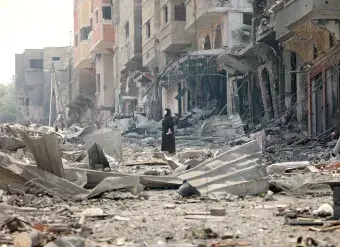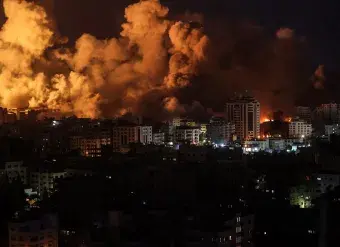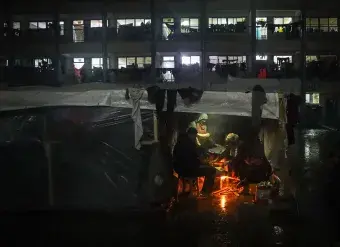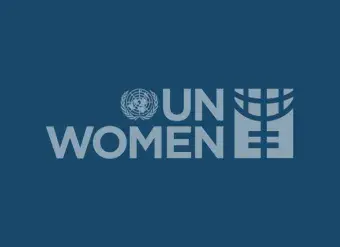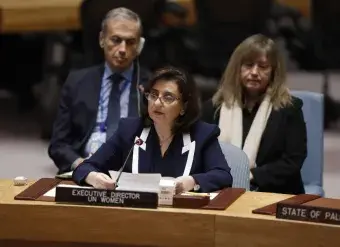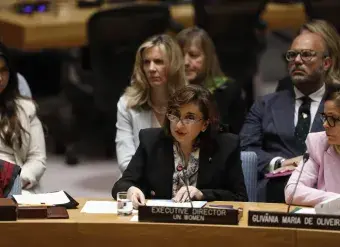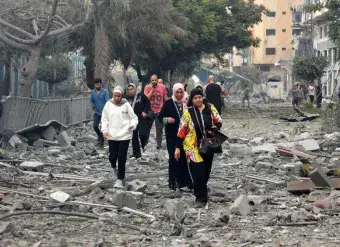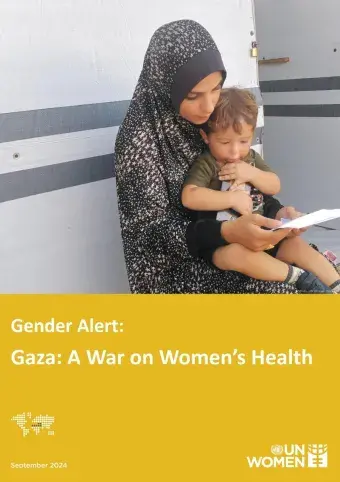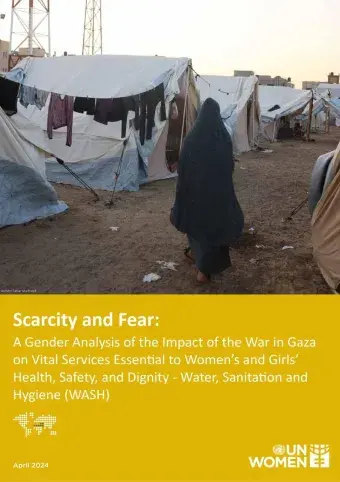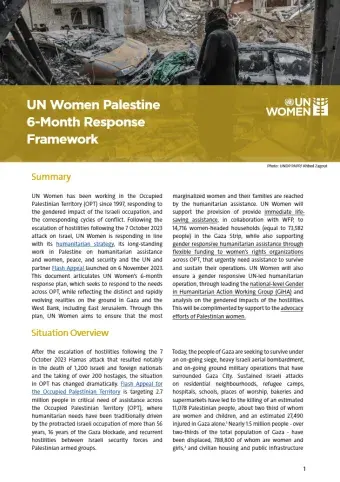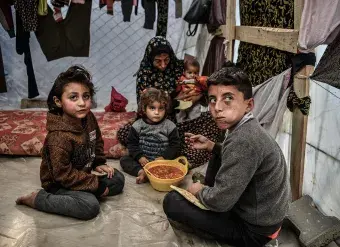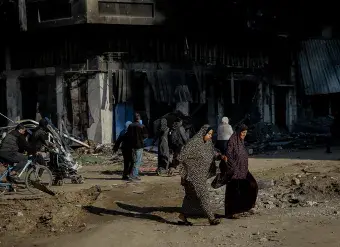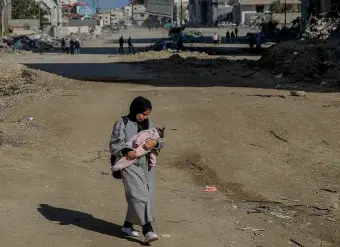Since the 7 October attacks on Israel, the subsequent devastating war on Gaza and the escalation of violence across the Middle East, women and girls have been attacked and killed, made targets of gender-based violence, taken hostage, illegally detained, deprived of their fundamental rights, starved, and prevented from meeting their own, and their families', needs.
The rights of every woman, whoever she is, must be respected at all times and in every situation, by all parties.
Our impact in numbers
women are facing severe food insecurity
women have been killed
women face life-threatening health risks
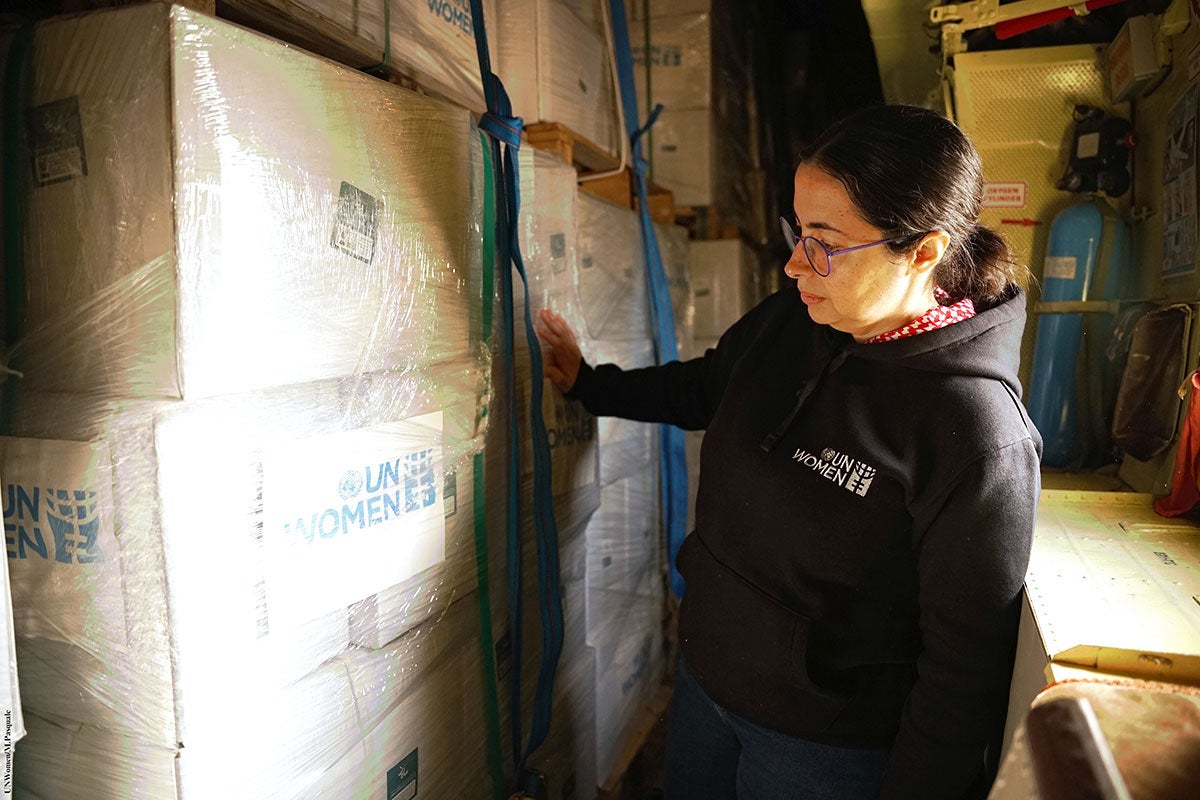
Our humanitarian work
UN Women has had an office in Palestine since 1997 to help women achieve their social, economic, and political rights. We remain present in Palestine to provide support and assistance and will do so for as long as it takes. Our work includes:
Providing humanitarian assistance
- Providing emergency food assistance to over 14,000 women-headed households, representing one-third of all women-headed households in Gaza, in partnership with the World Food Programme.
- Supporting the distribution of items requested by women on the ground, including non-food items such as clothing, sanitary products, and baby formula, in partnership with key UN entities.
- Providing 21,443 people (16,650 women and 4,793 men) in Gaza and the West Bank with comprehensive gender-based violence case management, sheltering, and reintegration support; group and individual legal awareness sessions; group and individual psychosocial support; structured psychosocial assistance; awareness raising sessions on available services; and provision of cash-for-work programming.
- Working with the Egyptian Red Crescent and the Jordanian Hashemite Charity Organization to distribute 14,000 dignity kits, 2,300 winter clothes packages, 3,200 women’s kits, and 3,793 children’s kits.
- Partnering with women-led organizations to provide gender-responsive multisectoral services including gender-based violence and livelihood responses to women and girls most affected including internally displaced women, women widows, women heads of households, and women with disabilities.
- Providing recreational activities for 2,500 boys and girls, psychosocial assistance to 224 women and girls, and mental health support services via mobile mental health clinics to 316 women and girls and 94 men and boys.
- Establishing women-led protection and response committees in shelters and in host communities to strengthen the participation of women in delivering humanitarian response, advocate for women’s protection and access to services, and amplify women’s voices.
- Convening regular consultations with women’s organizations in Palestine, to discuss the challenges they face while responding to the crisis and to amplify their voices.
Coordinating among humanitarian actors
- Leading national-level gender coordination efforts, including through co-chairing the national-level Gender in Humanitarian Action Working Group (GiHA) and the Prevention of Sexual Exploitation and Abuse (PSEA) Network.
- Providing technical support to bodies such as the Humanitarian Country Team (HCT), National InterCluster Coordination Group (NICCG), and relevant cluster and working groups (protection cluster, GBV Sub-cluster, CASH working group, etc.) to ensure women’s needs are considered in the planning, implementation, and monitoring of the crisis response.
- Supporting gender mainstreaming in key strategic planning documents, such as the Flash Appeal, and highlighting the gendered impacts of hostilities on women and girls.
- Convening regular consultations with women’s organizations to discuss the challenges they face while responding to the crisis and to amplify their voices.
Voices from Gaza
UN Women statements on the 7 October attacks
UN Women has not wavered in our support for all women and girls, has condemned all reports of sexual violence, and expressed deep concern for the estimated 100 hostages, many of whom are women.








